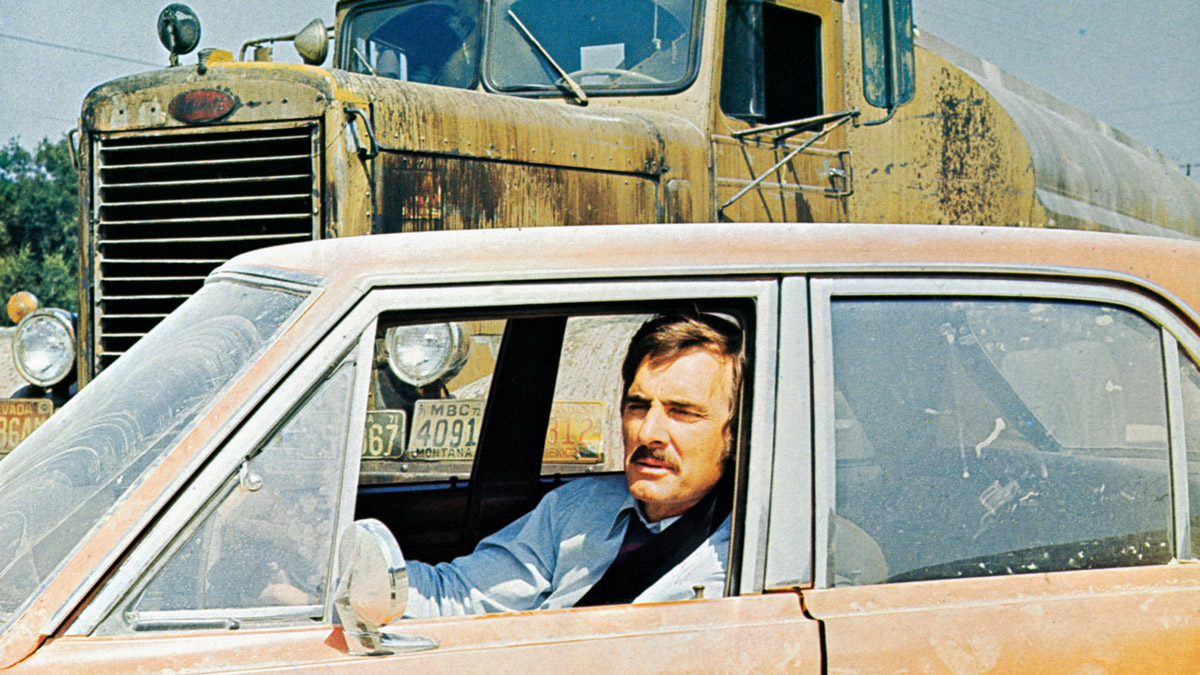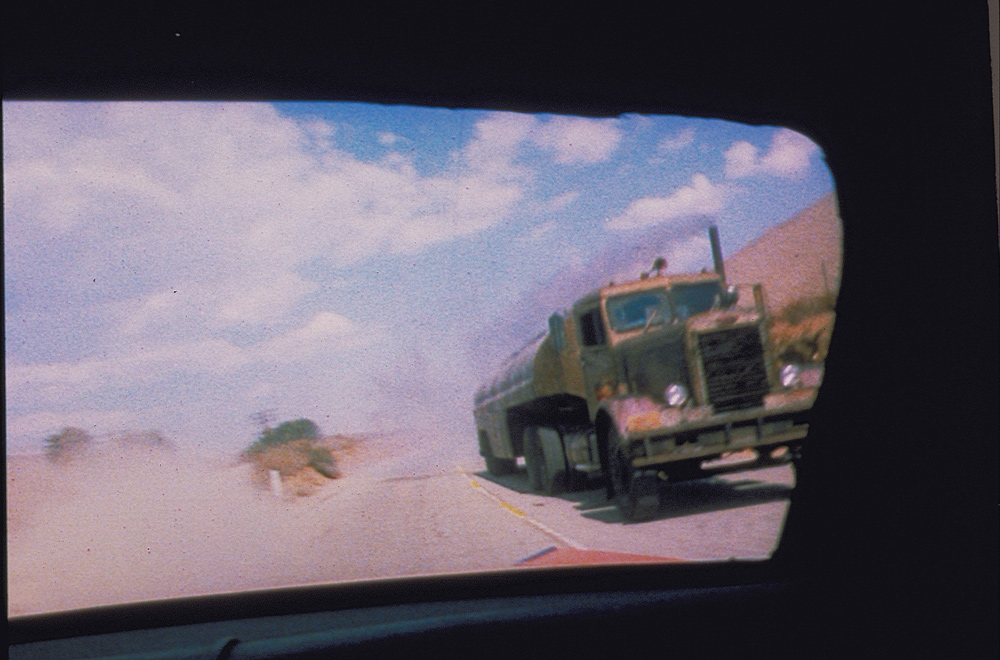
(C) 1971 Universal Studios. All Rights Reserved.
“Duel” The opponent is not the driver but the tank truck! A giant monster that destroys everyday life *Spoiler alert
2019.09.11
Two things that Spielberg was particular about
``Duel'' was originally completed as a 74-minute TV movie, but in 1973 it was distributed overseas as a 90-minute theatrical film. For the theatrical version, additional footage was filmed, including a scene at a railroad crossing where the Plymouth Valiant driven by the main character is pushed by a tanker truck and almost hit by a train, and a scene where two cars confront each other over a school bus.
However, by the time the film was completed, a fierce battle between Spielberg and the producer Universal Television had developed, more so than a Plymouth vs. a tank truck.
First, Spielberg, who was strongly inspired by the original author Richard Matheson's well-thought-out script, felt that there was too much dialogue, so he decided to cut out 50% of the dialogue. He had been watching silent movies ever since he was a boy, and was convinced that silence was the absolute element that stimulated the audience's imagination.

“Duel” (C) 1971 Universal Studios. All Rights Reserved.
However, Universal is vehemently opposed. Dramas with extremely few dialogues are too difficult for viewers. However, Spielberg was adamant and won a stunning victory. He completed a work with such confidence that he declared it ``his first silent film.'' ``If I had the final editing rights, I would have cut out even more lines,'' he said.
Spielberg and Universal also had trouble over the final shot. Universal, of course, insisted that the tanker truck explode after rolling down a cliff. They argued that it was necessary as an outlet for the viewers' anger, which they had suffered along with the main character for a long time.
In fact, Spielberg was more particular about the final shot than the amount of dialogue, and even made it clear that if his wishes were not met, he would step down as director. George Eckstein, a well-known producer known for his work on the popular TV series The Fugitive (1963~), agreed with Spielberg on this issue, and thanks to Eckstein's track record, he was able to overwhelm Universal.

